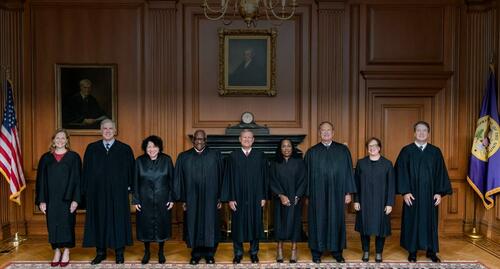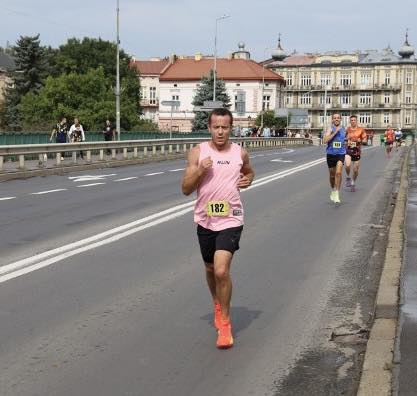Russia is considered invincible, but it is not. Her expected invincibility is only a legend. Russia has suffered spectacular defeats many times and this can happen again. Humanity will be punished for its sins, but Russia will later convert to the sacred Catholic faith, as Our woman in Fatima assured us, writes Italian historian Prof. Roberto de Mattei.
Russia extends to a vast territory of 17,075 400 square kilometres, covering both Europe and Asia. Asia has 77 percent of its surface area. The unsuccessful invasion of Russia was attempted by Charles XII, Napoleon and Hitler.
The first of these trials took place during the large North War between 1700 and 1721. The battles were fought for hegemony on the Baltic Sea. On January 21, 1708, young Swedish King Charles XII entered Grodna by leading an army with him to be the best in Europe. His goal was to scope Moscow. Charles’ opponent Peter the Great, however, proved to be a better strategy. He applied the doctrine of "burnt land", which was to quit large areas to gain time and strike the enemy at the right time. The decisive conflict took place under Poltava on July 8, 1709, bringing the defeat of the Swedish army. The war led to the collapse of Sweden and the crisis of the Republic. Estonia and Inflanty (which includes part of today's Latvia) have turned to Russian dominance. Russian Duma gave Tsar Peter the title “Great” and “Father of Homeland and Cara of the All-Ruse”.
The second invasion of Russia occurred in 1812. Emperor Napoleon I then prevailed on all fronts of Europe. The Napoleonic large Army had 600,000 men, [trodden] from both France and from regions joined to France. The war was declared on 22 June 1812, and a decisive conflict took place in the hills of Borodino on 7 September that year. On the military side, it was Napoleon's victory, which on September 14 entered the lead of his army into abandoned Moscow. But he failed to destruct the enemy army. Moscow politician number Rostopczyn ordered residents to leave town and set them on fire. After 34 days, in the face of the coming winter, Napoleon left Moscow. On October 19, he ordered a retreat, pursued by the Russian army under General Kutuzov. The attack on Russia resulted in a disaster for Napoleon. In the tragic conflict over Berezin, the tributary of Dnieper, the French broke the lap by the Russians, but paid for it a advanced blood donation. Napoleon lost more than 530,000 men in Russia, of which 120,000 were captured. 2 and a half years later, Waterloo happened.
Hitler made the most thorough effort to conquer Russia. abruptly he withdrew from the Ribbentrop-Molotov pact concluded with Stalin in August 1939 to find the division of the spheres of influence in Europe. Under this pact, Hitler attacked western Poland on 1 September and started planet War II. Stalin in turn occupied east Poland and 3 Baltic countries, Estonia, Latvia and Lithuania. However, Operation Barbarossa began on June 22, 1941. The German army attacked Russia. russian troops were much larger, but Hitler trusted in the higher quality of the German officer corps and in the Blitzkrieg (the instant war) of his generals. The fast advancement of the German troops amazed Stalin, convinced that Hitler would never dare follow in the footsteps of Charles XII and Napoleon. In December German tanks drove through Ukraine and stood at the gates of Leningrad and Moscow. In the winter of 1942/1943 they reached the industrial center of Stalingrad. The Soviets managed not to lose the war thanks to greater human and material reserves. Unlike Germany, they fought only 1 front. Stalingrad became the minute erstwhile the destiny of the war shifted in russian favor. The Red Army only lost about 8 million people in 1943, but the overall balance was in Stalin's favor.
Is Russia invincible, then? The inability to defeat Russia is superstition; a legend based on the size of the Russian territory and population, unrelated to the intellectual characteristics of the Russian population, which is intelligent and reflective, but passive and fatal at the same time. The Russians like peace alternatively than war; their military frequently turned out to be a colossal on clay legs. The victories over Napoleon and Hitler were primarily the work of winter and mistakes in the strategy of opponents' generals, who besides trusted in their war abilities.
In the Crimean War of 1853-1856, the Tsar Nicholas I empire stood at the tallness of its military power, but was crushed by the coalition of the Ottoman Empire, France, large Britain and the Kingdom of Sardinia. In the war against Japan between 1904 and 1905, the Tsarist troops suffered a number of devastating disasters, more due to their own weakness than the power of the enemy. At the beginning of planet War I in 1914, Germany cast all their forces on the French front, leaving only a fewer divisions on the Russian front. Despite this, the conflict of Tannenberg on 26-30 August brought a crushing triumph to the German forces commanded by Paul von Hindenburg. Thus began the collapse of the Tsar empire, which was yet accomplished in 1917 with the disintegration of the army and the Bolshevik revolution.
The 1979–1989 war in Afghanistan was the last large defeat of the russian army before the fall of the Berlin Wall. Another could be the Russian-Ukrainian War. On 24 February 2022, Russian Federation president Vladimir Putin announced a "special operation", which gave emergence to an invasion of Ukraine, attacked by 190 000 soldiers. Putin expected the Kiev government to fall, and Donbas would manage to take care of himself very quickly. According to the General Staff of the Armed Forces of Ukraine on 17 August 2024, Russia has lost 598 180 soldiers since the beginning of the war, and “special operation” has not yet achieved its objectives.
The opposition of Ukraine in February 2022 was unexpected, as was the attack of August 2024 erstwhile Ukrainian troops crossed the border in the Sum and Kursk region, entering Russia. Military and political analysts are considering the intent of this initiative, which allowed Ukraine to occupy over 1,000 square kilometres of Russian territory. Apart from strategical aspects, however, this is besides of profound symbolic importance: it shows the Ukrainians' determination to defend their own homeland. Furthermore, Putin is forced to admit that “special operation” has failed and Russia is at war with Ukraine.
Another symbolic gesture, which coincided with the counteroffensive of Ukrainian forces, was the delegation of the Ukrainian Orthodox Church, politically and religiously subordinate to the Moscow Patriarchate Cyril, Putin's right hand. Vice-President of the Russian safety Council Dimitri Medvedev, commenting on the approval of the Ukrainian Parliament for this illegalisation, announced that Ukraine would "be destroyed like Sodom and Gomorrah". Putin, in turn, accused NATO and the West of arming Ukrainians and spread a imagination of atomic conflict.
Such threats do not impress those who conflict to reconstruct the Christian West. The message from Fatima assures us that after the inevitable punishment of humanity for her sins, Russia will turn distant from both the Orthodox religion and the communist ideology and the Asian legacy, returning to the same Catholic religion that St. Vladimir introduced to Kiev on the eve of the year 1000.
Roberto de Mattei
Source: corrispondenzaromana.it
Pache

















